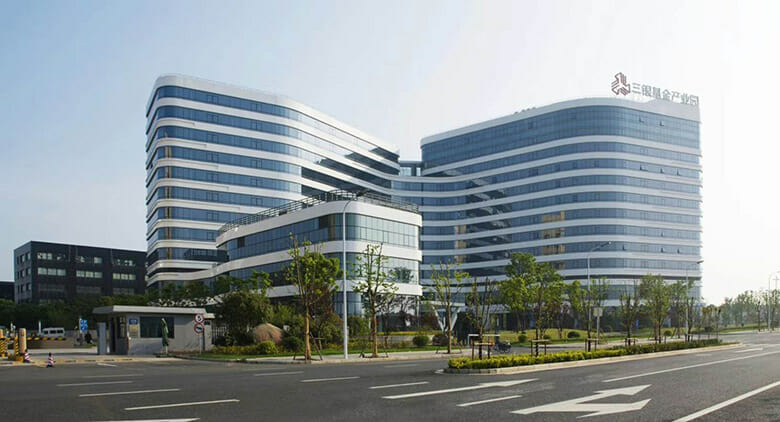
A Ronshine project in Shanghai’s Hongqiao area
Mainland developer Ronshine China Holdings has defaulted on a $420 million offshore bond, offering a fresh sign that the debt crisis in Asia’s biggest real estate market is far from over.
The Singapore-listed notes, issued in July 2019, carry a coupon rate of 8.95 percent and have an aggregate principal amount of $413 million. The principal amount and accrued and unpaid interest totalling $431.5 million became due and payable on 22 January 2023, Fuzhou-based Ronshine said Thursday in a filing with the Hong Kong stock exchange.
“As of the date of this announcement, the company has not made such payment,” chairman Ou Zonghong said in the filing.
The delinquent payment translates to a fourth bond default in six months for Ronshine, putting the midsized builder at least $1.8 billion in arrears. The company said it would “actively engage with its creditors” in order to seek a solution to its debts while maintaining stable project operation and cash collection.
Dwindling Prospects
Just three months ago, Ronshine revealed its default on a $700 million offshore bond with an aggregate principal amount of $688 million. That news came on the heels of a July disclosure in which Ronshine said it failed to make good on two sets of offshore bonds with a combined outstanding principal of $726 million.

Ronshine chairman and CEO Ou Zonghong
In the wake of the July defaults, Moody’s Investors Service lowered Ronshine’s corporate family rating by three notches, from Caa1 to Ca, and dropped the company’s senior unsecured rating to C — the agency’s lowest bond rating.
“The downgrade reflects our expectation of weak recovery prospects for Ronshine’s bondholders after its default on interest payments,” Moody’s analyst Alfred Hui said at the time.
Ronshine’s December contracted sales totalled RMB 1.1 billion (now $160 million), an 89 percent plunge from year-earlier levels, according to an unaudited operating statement. The company’s contracted sales for the whole of 2022 reached RMB 57.9 billion, down 63 percent year-on-year.
In November last year, Ou Zongrong, then chairman of Fujian-based developer Zhenro Group and an older brother of Ronshine boss Ou Zonhong, resigned from the company he founded after Zhenro defaulted on a number of offshore bonds and had its credit rating withdrawn by Fitch in September 2022.
Winners and Losers
As China’s real estate crisis grinds on, the government continues to bail out a select menu of property groups while less-favoured firms twist in the wind.
Last week, state-controlled Xiamen C&D agreed to buy what could be a controlling stake in Red Star Macalline Group, an Alibaba-backed home improvement mall chain, at a consideration of up to RMB 6.3 billion ($938 million).
A few days earlier, reports surfaced that Fosun International had received a RMB 12 billion ($1.8 billion) loan from a syndicate of state-owned banks. The Shanghai-based conglomerate has been working overtime to improve its credit profile through a string of asset sales.
Meanwhile, serial defaulter Kaisa Group Holdings is being sued by Oasis Capital Management over $102.3 million in unpaid principal and interest purportedly owed to the Hong Kong-based investment firm. With $12 billion in offshore debt, Shenzhen-based Kaisa is China’s second-most indebted developer in offshore markets after China Evergrande Group.
Leave a Reply